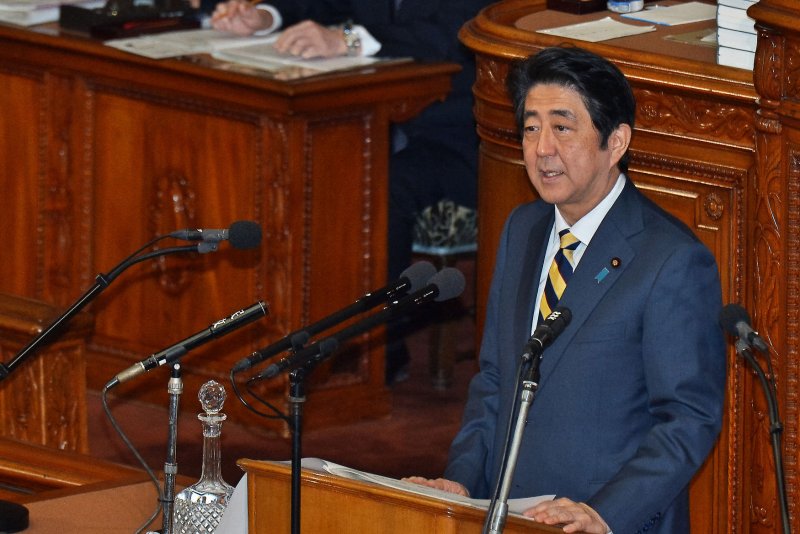Japan's Prime Minister Shinzo Abe told reporters Thursday that Tokyo’s National Security Council has come to a "firm" decision regarding North Korea. File Photo by Keizo Mori/UPI |
License Photo
TOKYO, Feb. 10 (UPI) -- Japan is taking steps to extend sanctions against North Korea, and new policies include a ban on money transfers and denying entry to North Korean nationals.
The restrictions issued Wednesday are a response to Pyongyang's recent nuclear test and rocket launch, Bloomberg reported.
Chief Cabinet Secretary Yoshihide Suga said money transfers of more than 100,000 yen, or $870, will no longer be permitted, adding North Korea's firing of a ballistic missile poses a "direct and serious threat" to Japan that cannot be tolerated.
New regulations are also to check against the movement of North Koreans to and from Japan, South Korean newspaper Maeil Business reported.
All North Korean vessels are to be banned from docking at Japanese ports, and even third-country ships that previously visited North Korea are to be banned from Japan.
Individuals with technical knowledge of nuclear weapons and missiles who have previously visited North Korea are to be banned from re-entry into Japan, and all people holding North Korean passports are to be blocked from entry.
The Japan sanctions are to play a role in a three-dimensional framework that is to include embargoes issued by the United Nations Security Council as well as the trilateral alliance of the United States, Japan and South Korea, the Nihon Keizai reported.
The sanctions undo several Tokyo initiatives that began in 2014 when the Japanese government began easing anti-Pyongyang regulations, in a bid to resolve the North Korean abduction issue.
Talks over the repatriation of remaining Japanese abductees collapsed in 2015 after North Korea denied it was holding the missing persons in custody.
Japanese Prime Minister Shinzo Abe told reporters Thursday that Tokyo's National Security Council has come to a "firm" decision regarding North Korea and that Japan would continue to work closely with the international community to solve the nuclear and missile issue.















